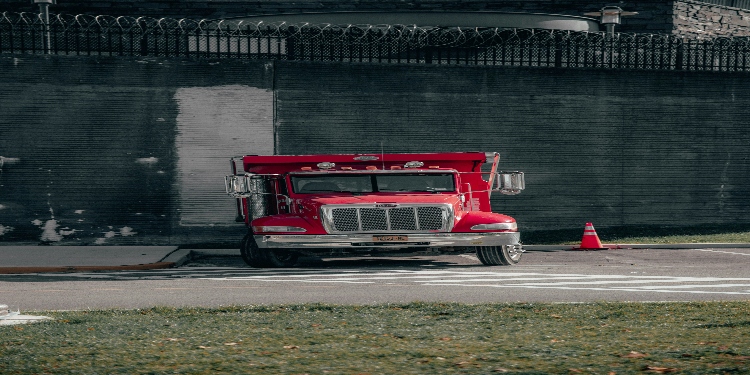Every time a big truck or bus hits the road, there’s a lot more going on than just turning the key and driving off. These vehicles don’t just carry people or goods—they carry a ton of weight and a lot of responsibility. That’s why before they move even an inch, they need to go through some important checks to make sure everything’s working exactly how it should.
Whether it’s a short delivery route or a long haul across the country, making sure the vehicle is safe isn’t just smart—it’s necessary. One small problem in a heavy-duty vehicle can lead to a big accident, which is something nobody wants.
Safety First: Why Inspections Matter
Trucks and other large vehicles have way more going on than regular cars. They’re taller, heavier, and take way longer to stop. Because of this, inspections before hitting the road aren’t just helpful—they’re legally required in most places.
Drivers and mechanics check all kinds of things. Lights, tires, mirrors, fluids, and the engine are some of the basics. But the most important part? The brakes. If those aren’t working perfectly, the risk on the road shoots way up.
That’s why brake testing is such a big deal. Even though it doesn’t take long, it can catch problems early, before they turn into something serious.
The Role of Brake Testing in Heavy Vehicles
One of the smartest tools in a workshop is a brake tester. This machine checks how well a truck or bus can stop. It doesn’t just say “yes” or “no”—it measures how much braking force each wheel has, how balanced the brakes are, and whether the system reacts quickly.
Workshops that deal with heavy vehicles often rely on Heavy-Duty Brake Testing Equipment to do this job right. These machines are made to handle big trucks and give clear data so mechanics can make sure everything’s safe. Without this kind of equipment, it’s easy to miss a small issue that could grow into a major one.
What Mechanics Actually Check
When a truck comes into the workshop, the first step is usually a walk-around. Mechanics look for obvious problems—flat tires, cracked mirrors, leaking fluids. But after that, the testing gets more detailed.
Brakes are tested using roller brake testers. The truck’s wheels spin on rollers while the brakes are applied. The machine then shows how strong each brake is and if the pressure is even across all wheels.
Other things that get checked:
- Tire pressure and tread
- Engine oil and coolant levels
- Air systems (especially in vehicles with air brakes)
- Suspension and steering parts
- Lights, reflectors, and signals
Everything has to be in good shape before a truck can head out safely.
Why Brakes Need Extra Attention
Big vehicles are hard to stop. When fully loaded, they can weigh more than 40 tons. That much weight moving at high speed takes a lot of force to slow down. Brakes do all the work, and if they’re worn out or not working evenly, the whole vehicle becomes dangerous.
Even if one brake is a little weaker than the others, the truck could pull to one side or take longer to stop. That’s especially risky when going downhill or driving in bad weather. Regular brake tests help catch those problems early.
Also, many trucks use air brakes, which are more complex than the hydraulic ones in cars. Air brakes need enough pressure, clean air lines, and working valves. A small air leak or delay can mess up the whole system. Brake testers are great at spotting those issues without needing to take the whole thing apart.
What Happens If a Truck Fails a Check?
If something doesn’t pass inspection, the truck doesn’t go anywhere. That’s a good thing—it means a problem got caught in time. The shop will fix whatever went wrong, whether it’s replacing brake parts, fixing a tire, or adjusting steering.
Sometimes the fix is quick. Other times, the vehicle needs to stay in the workshop longer. Either way, no responsible driver or fleet manager wants a truck on the road unless it’s completely safe.
Skipping checks might seem faster, but it’s a huge risk. Accidents caused by bad brakes or worn tires can be deadly. They also lead to huge repair bills, missed deliveries, and even legal trouble.
Keeping Things Legal and Safe
In a lot of places, there are rules about how often commercial vehicles need to be inspected. These rules help make sure that all vehicles on the road meet safety standards. Workshops that use reliable testing gear can provide official reports showing that everything’s been checked and cleared.
Having the right paperwork is important, too. If a truck gets stopped by roadside inspectors or is involved in an accident, that brake test report can make a big difference. It proves the vehicle was inspected and passed, which can help protect the driver and the company.
Newer Tech Is Making Inspections Better
Brake testing and vehicle checks are getting faster and smarter with better equipment. New machines can give digital readouts, store test results, and even send reports right to a phone or computer. That saves time and keeps everything organized.
Some systems even track how a vehicle performs over time. If the same brake problem keeps coming back, the shop can dig deeper and find out what’s really causing it. Maybe it’s how the truck is loaded. Maybe the driver is braking too hard. Having that info helps everyone stay ahead of problems.
Why This Matters for Everyone
Even people who don’t drive trucks should care about this. Heavy-duty vehicles share the roads with everyone—cars, bikes, and pedestrians. If a truck’s brakes fail in traffic, it can be a disaster.
That’s why inspections and brake testing aren’t just about following rules. They’re about keeping everyone safe. Every safe truck on the road means fewer accidents and better trips for everyone.
Final Thoughts
Before a truck heads out, there’s a whole process to make sure it’s road-ready. Mechanics check everything from the tires to the tail lights, but nothing’s more important than the brakes. With the right brake testing equipment and a smart inspection routine, workshops help stop problems before they start.
Keeping heavy vehicles safe isn’t just the driver’s job. It’s a team effort—from the workshop to the road—and it starts with doing the checks that matter.









































































